Technology for Predicting the Life of Solar Panels
Do you know how long a solar panel actually lasts?
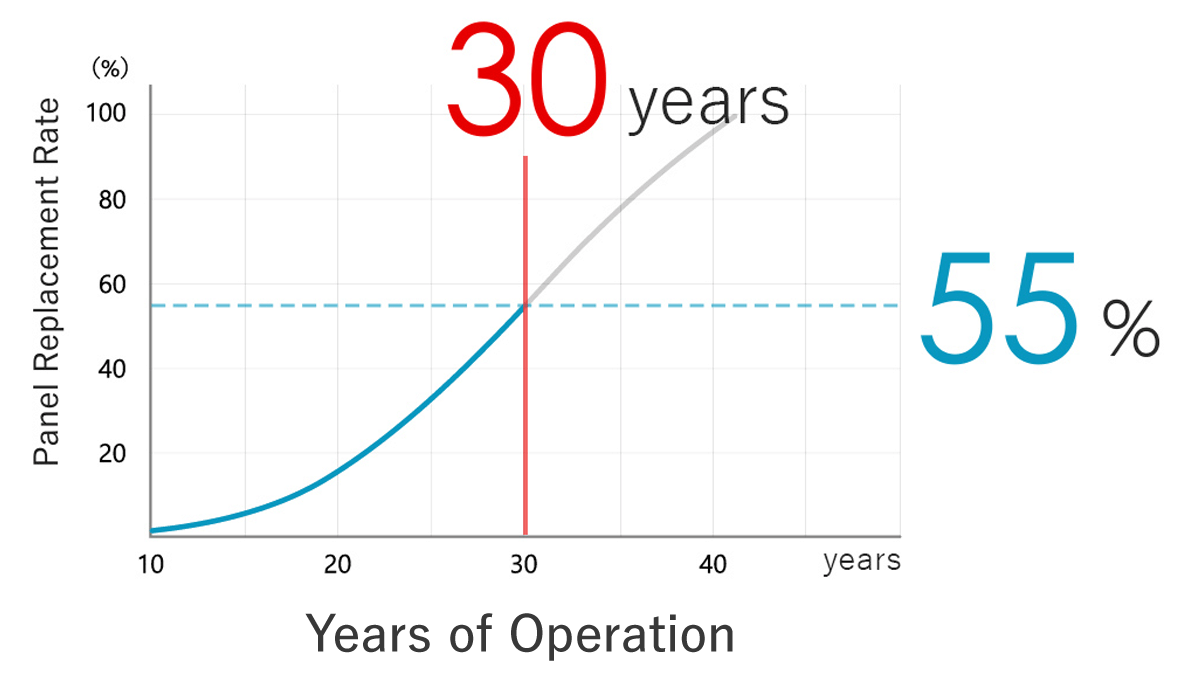
Solar panel manufacturers generally guarantee output for 20 to 30 years, and according to a 2020 report*1 by PVEL (a third-party evaluation organization), more than half of all typical solar panels will need replacement after 30 years of operation.
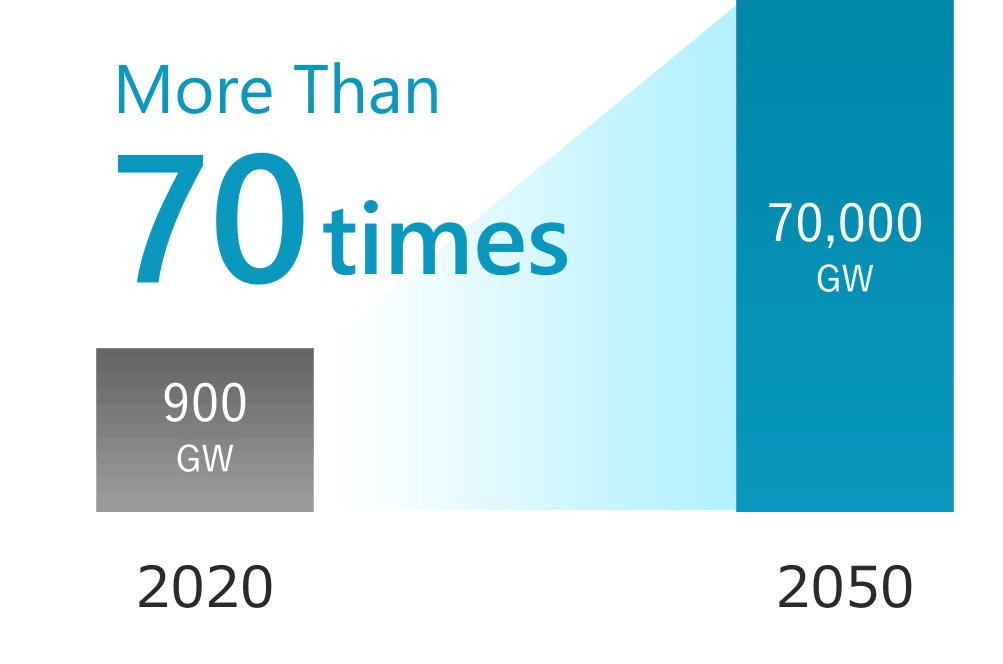
To achieve carbon neutrality by 2050, the Japanese government plans to supplement "36-38%"*2 of Japan's power source composition with renewable energy in FY2030, and solar power generation is expected to be a key player. Looking at the global solar power generation market, the cumulative amount of installed capacity in 2050 is expected to be 70,000 gigawatts, more than 70 times the amount in 2020*3.
While more and more solar panels are expected to be installed in the future, panel lifespan will be extremely important, as longer panel lifespan will reduce the amount of new resources required to replace panels and reduce the amount of panel waste. However, it is difficult to predict the life of solar panels, and determining the actual product life has proven very challenging.
*1 PVEL (major independent testing lab, USA), 2020 PV Module Reliability Scorecard
*2 Ministry of Economy, Trade and Industry, the Sixth Strategic Energy Plan
*3 J. Renewable Sustainable Energy 12, 053505 (2020)
Kyocera’s new SoRelia® technology can predict the long-term reliability of solar panels!
Kyocera has developed SoRelia, a technology for designing and predicting the long-term reliability of solar panels, and obtained a patent*4 for this proprietary technology. This technology lets us predict the product life of solar panels purchased by customers, as well as the remaining life of solar panels operating in customers‘ homes and power plants. This technology will enhance panel reuse/recycling decisions and support the evaluation of the value of used power plants, thereby contributing to the reduction of solar panel disposal and total lifecycle CO₂.
*4 JP patents 6811974, 6818307, 6837649
Check out the video for more information on SoRelia®!
Three factors are necessary for predicting the lifespan of solar panels.
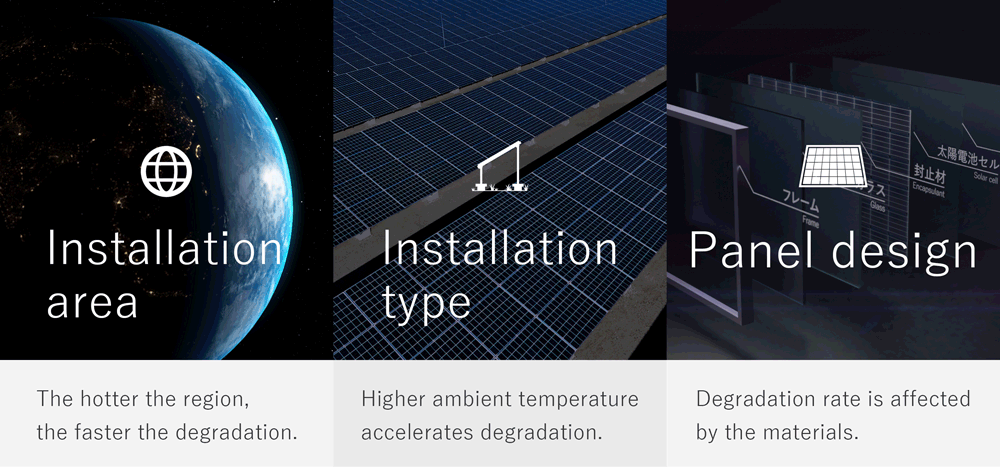
Three factors are necessary for predicting the lifetime of solar panels: "installation area," "installation configuration," and "panel design.” The stress on solar panels varies depending on where and how they are installed, so it is important to choose panels designed for that environment.
How is Kyocera able to predict life solar panel expectancy?
Kyocera began research and development of solar panels in 1975, and from the very beginning, Kyocera’s primary focus has been on long-term reliability. In the process, we developed a proprietary encapsulant, which is highly resistant to environmental stresses, and we have patented this technology.
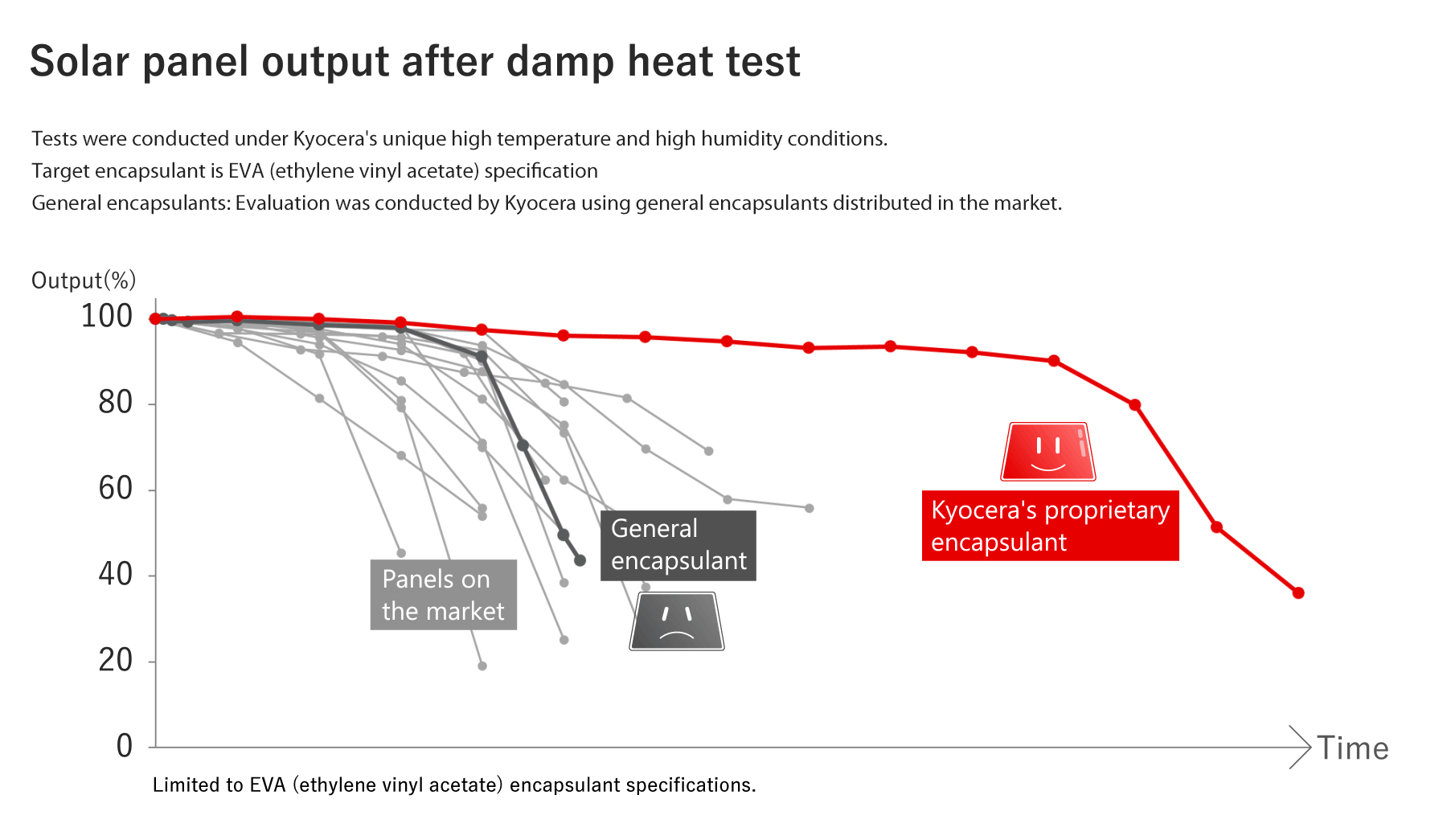
In 1982, Kyocera was the first company in the world to begin mass production of solar panels, and over the past 30 years, Kyocera has systematically collected market-installed products from around the world and accumulated panel degradation data.
Kyocera's unique long-term reliability design and life prediction technology SoRelia was born using this long-term reliability technologies and market degradation data.
Predictions using SoRelia® technology are consistent with collected panels from the market!
The life expectancy predicted by SoRelia accurately matches the life expectancy of panels collected and verified after installation in the market.
Furthermore, SoRelia predicts a longer life for panels using Kyocera's proprietary encapsulants compared to panels using general encapsulants.
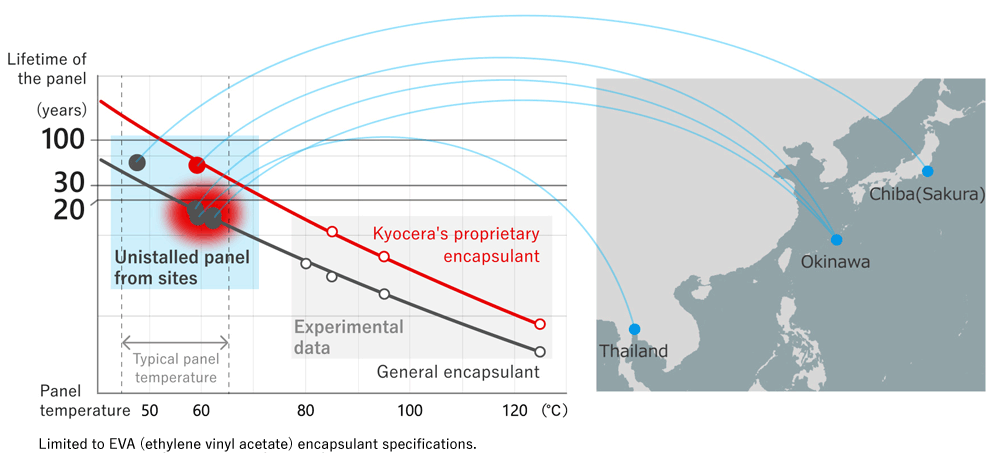
In addition, panels using general encapsulants resulted in a lifetime of less than 20 years depending on environmental stresses, which is consistent with the PVEL report.
Kyocera's proprietary SoRelia® technology will contribute to the realization of a sustainable society.
Kyocera will continue to provide reliable PV systems with high-quality product design and evidence-based output guarantees based on Kyocera‘s proprietary SoRelia® technology. We also aim to contribute to the realization of a sustainable society through the development of services that utilize this technology.
Kyocera’s Photovoltaic Power Generation System of "Trust" and "Achievement"
Kyocera's long-life encapsulant and lifespan prediction technologies were jointly developed with a top Japanese research institute.
Kyocera's long-life encapsulant and lifespan prediction technologies were jointly developed and patented with AIST (The National Institute of Advanced Industrial Science and Technology) and FREA (Fukushima Renewable Energy Institute, AIST).
Using proprietary encapsulation materials increases the lifetime power generation of the solar panels.
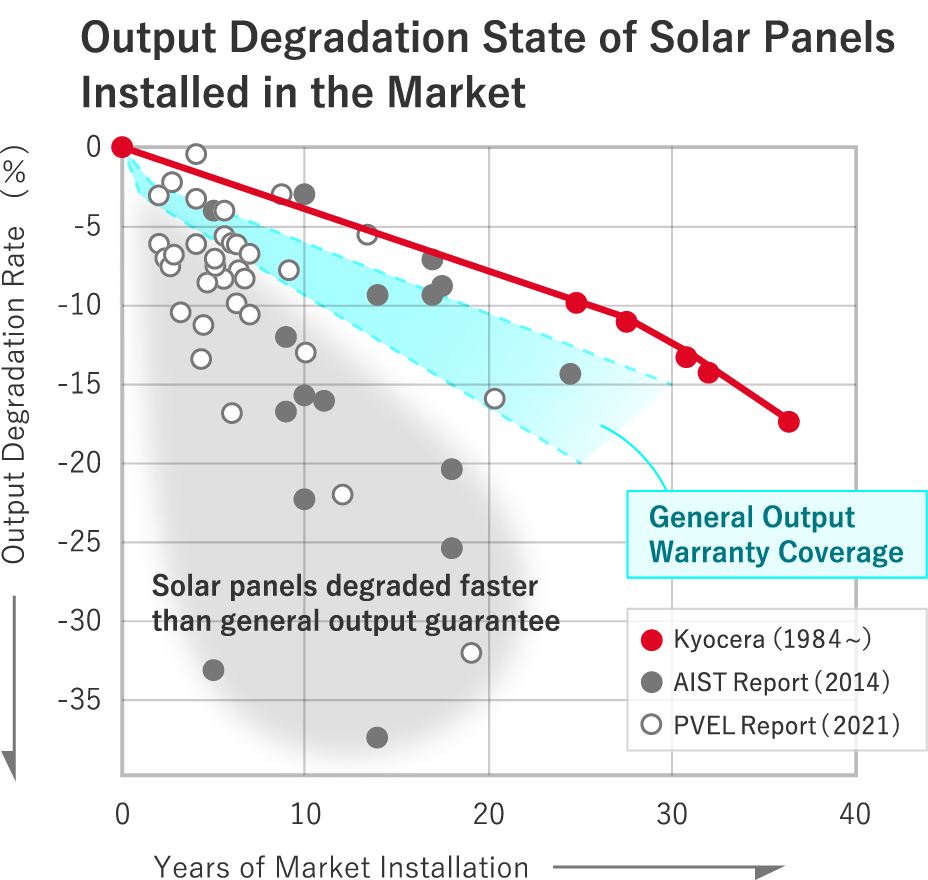
The lifetime of solar panels is generally expected to be longer than the guaranteed years, but as the graph of output degradation information for market-installed products shows, there are a small number of solar panels that degrade faster than the general output guarantee line.
0.5% difference in the annual degradation rate is estimated to result in a difference of approximately 12% in total power generation over 30 years.*5
Kyocera uses proprietary encapsulation materials to suppress the degradation rate and extend the lifetime of solar panels.
*5 Source: Kyocera's trial calculation based on "Prediction of Product Lifetime Using Accelerated Tests and Models" (TECHNICAL INFORMATION INSTITUTE CO., LTD), assuming 0.5% improvement in annual degradation rate and 30 years of operation (compared with a panel with -30% degradation in 30 years of installation and a panel with -15% degradation in 30 years of installation).
The world's top encapsulant manufacturers*6 use Kyocera's unique long-life encapsulant technology.
Executed a basic agreement to license long-life encapsulation materials only to杭州福斯特应用材料股份有限公司(Hangzhou First Applied Material Co., Ltd.) and to jointly develop new encapsulation materials.
Solar panels installed at Kyocera’s Sakura Office in Japan in 1984 are still in operation today.

The solar panels at Kyocera's Chiba Sakura Office, which have been in operation since 1984, are still generating power with only 17% degradation as of 2021, the 36th year of operation*7 . This is consistent with SoRelia's lifespan prediction line, which considers the installation area, installation configuration, and panel design. (See graph of market recovered products above)
*6 In encapsulation materials for solar panels (as of 2019)
*7 Based on actual data and taking into account external factors, such as measurement accuracy and variation in output characteristics (29 panels in the system were measured by Kyocera, as of February 2021).
●SoRelia is a registered trademark of Kyocera Corporation in Japan and China.
For inquiries, please contact us here

